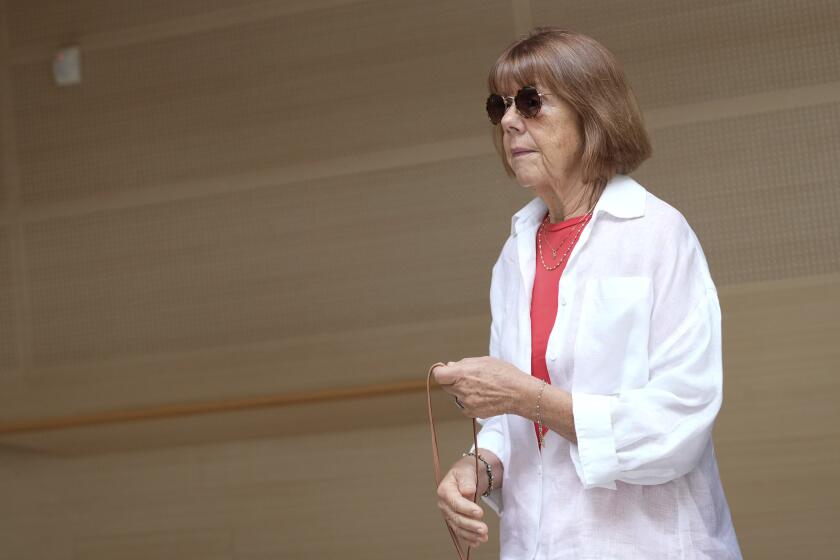Foster Parents Seek Clout of the Collective
Steve Baxter worked for many years as a logger, and for many years he has served as a foster parent too. His job in the woods earned him the right to join a union. Why, asks the 54-year-old Baxter, should his job in the home be any different?
Baxter and his wife, Daniele, whose business card describes her as a “professional parent,” are part of a strong movement to make Washington the first state with a union representing foster parents. That would provide the caregivers bargaining rights with the state, which could lead to higher pay, retirement benefits and health insurance.
But some lawmakers vigorously oppose the idea, saying it would send a terrible signal to the mistreated and neglected children taken into foster parents’ homes.
“This idea takes away from the whole purpose of why people should take these kids in, which is volunteerism,” said state Sen. Joe Zarelli, a Republican from southwestern Washington and himself a former foster parent who adopted one of the children he and his wife took in.
“We don’t pay people pensions and benefits and so forth to take care of their own children,” said Zarelli. “And we shouldn’t do it with foster children, either.
“If you take it in that direction, you’re basically going back to orphanages,” he said. “It will be, ‘Let’s do the math, let’s pack in as many kids as we can -- what’s the profit margin here?’ ”
The foster parents who favor forming a union take umbrage at that suggestion and liken the work they do to that of home health workers, who have joined unions in several states.
“When you take high-needs kids into your home, it is more like a job, and you need the training and the respect that go along with a job,” said Beth Canfield, a foster parent in Bremerton. She has had several hundred foster children in the last 23 years and currently has five.
“The fact is, these aren’t kids you can drop off at the roller rink,” said Canfield. “Some can’t be unsupervised, ever. That does make it more of a profession.”
Hundreds of the state’s 6,000 licensed foster parents have signed petitions to join the Washington Federation of State Employees, an AFL-CIO affiliate, in what a union director hopes will become “a pattern around the country” of foster parents asserting the right to join the union.
The move has drawn a neutral stance so far from the National Foster Parent Assn. Fellow advocacy groups representing foster parents or foster children have also declined to take a position, as has Washington’s governor, Democrat Christine Gregoire.
Washington has about 9,500 children in foster care. The parents are reimbursed on a sliding scale by the state, about $375 to $525 a month.
Foster parents also receive clothes vouchers, healthcare and other aid for the children.
In a letter to state child welfare officials last month, the nonprofit Foster Parents Assn. of Washington State -- which is led by the Baxters -- announced it was establishing joint membership with the state workers’ union, “an important and historic step.”
The state’s foster-care system is in “crisis,” the letter said, and is plagued by high turnover and a lack of respect for what foster parents do.
“Foster parents leave the system in Washington every day because they feel unprepared and unsupported,” the letter said.
“We feel there is hope if we can change the basic relationship between the state and foster parents,” the letter said, adding that unionization could help establish “a substantial core of highly trained, highly skilled foster parents to care for children with serious behavioral issues.”
As in many other states, Washington has been periodically sued to improve its foster-care system, and the training time for foster parents has been increased to 36 hours.
That is a far cry from the 30 minutes or so that foster parents once received, but advocates say it is nowhere near enough time to develop a truly professional cadre of caregivers and decrease turnover.
Canfield, who is a vice president of Foster Parents Assn. of Washington State, said foster parents deserved a greater say in developing work standards, training and pay scales.
“Foster parents should be at the table when decisions are being made,” said Canfield, describing unionization as an important means to achieve that aim.
But Zarelli, who along with his wife cared for several dozen foster children in the 1980s, said unionization was antithetical to good foster parenting.
“You don’t do it for what you can ‘get,’ other than what you get directly from the kids in the form of appreciation and knowing that you’ve been a huge help in their difficult lives,” Zarelli said.
“On the other hand, if you’re treating them like a business, like they’re just a job to you, then they’re going to know that too.”
More to Read
Sign up for Essential California
The most important California stories and recommendations in your inbox every morning.
You may occasionally receive promotional content from the Los Angeles Times.










